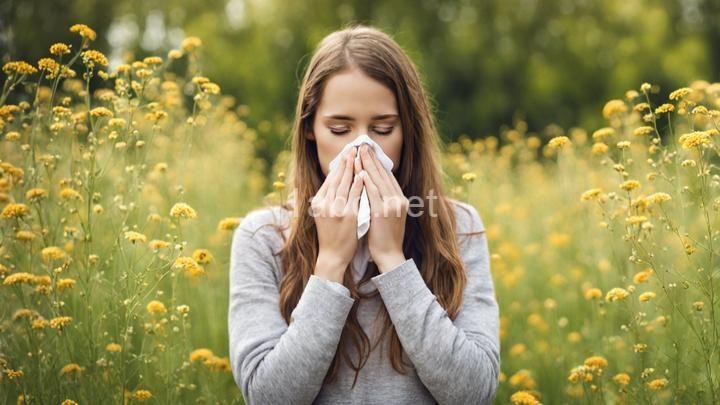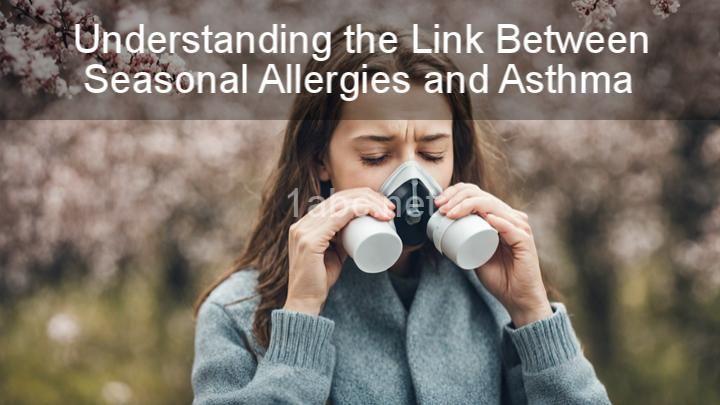Food Allergies 101: What You Need to Know

Welcome to our friendly guide on food allergies! If you or someone you know has a food allergy, or if you simply want to learn more about this topic, you've come to the right place. In this blog post, we will provide you with all the essential information you need to know about food allergies.
Food allergies are becoming increasingly prevalent and can have a significant impact on individuals' lives. According to recent studies, it is estimated that approximately 32 million Americans have food allergies, with children being more susceptible. The prevalence of food allergies is rising, and it is crucial to understand the basics to ensure the safety and well-being of those affected.
So, let's start by understanding what food allergies are. A food allergy is an abnormal immune response to certain proteins found in food. When someone with a food allergy consumes an allergenic food, their immune system mistakenly identifies it as harmful and triggers an allergic reaction. This response can range from mild to severe and potentially life-threatening.
The immune system's reaction to allergens can manifest in various symptoms. Some common signs of a food allergy include hives, itching, swelling of the lips or tongue, abdominal pain, vomiting, diarrhea, and difficulty breathing. In severe cases, a severe allergic reaction called anaphylaxis can occur, which requires immediate medical attention.
Now that we understand what food allergies are and their symptoms let's delve into the most common food allergens. There are eight major food allergens that account for the majority of food allergies. These include milk, eggs, peanuts, tree nuts, soy, wheat, fish, and shellfish. These allergens are more prevalent because they contain specific proteins that are more likely to trigger an immune response in susceptible individuals.
It's important to note that these allergens can be found in many different foods, even those that may not seem obvious. For example, milk can be present in baked goods, sauces, and even some processed meats. Understanding potential hidden allergens is crucial for individuals with food allergies to avoid accidental exposure.
If you suspect you have a food allergy, it's essential to seek medical advice for an accurate diagnosis. Consulting an allergist can help determine the specific allergens causing your symptoms and develop a personalized management plan. Diagnostic methods used in diagnosing food allergies include skin prick tests, blood tests, and elimination diets. These tests help identify the specific allergens triggering your symptoms and guide treatment decisions.
Living with food allergies requires strict avoidance of allergenic foods to prevent allergic reactions. Reading food labels carefully is crucial to identify potential allergens. Manufacturers are required to list common allergens on their products, making it easier for individuals with food allergies to make informed choices. However, it's important to note that cross-contamination can occur during food preparation, and certain products may not clearly indicate hidden allergens. When in doubt, it is always safer to avoid the food altogether.
Dining out and attending social events can be challenging for individuals with food allergies. However, with proper planning and communication, it is possible to navigate these situations safely. When dining out, it's essential to inform the restaurant staff about your allergies and ask about the ingredients in the dishes. Many restaurants now offer allergen menus or have staff trained in handling food allergies. It's also helpful to bring safe snacks or a small meal when attending events where food may not be allergen-friendly.
Managing food allergic reactions is another critical aspect of living with food allergies. Anaphylaxis is a severe and potentially life-threatening allergic reaction that requires immediate medical attention. It is characterized by symptoms such as difficulty breathing, swelling of the throat, rapid heartbeat, and a drop in blood pressure. If you or someone you know is experiencing anaphylaxis, it's essential to call emergency services and administer epinephrine using an auto-injector, commonly known as an EpiPen. Carrying an EpiPen at all times is crucial for individuals with severe food allergies to be prepared in case of an allergic reaction.
There are several misconceptions surrounding food allergies that need to be addressed. One common misconception is that food intolerance is the same as a food allergy. While both can cause unpleasant symptoms, food intolerance does not involve the immune system and is not life-threatening. Another misconception is that individuals will automatically outgrow their food allergies. While some children may outgrow certain food allergies, this is not the case for everyone. It is essential to consult an allergist for regular evaluation and guidance regarding food allergies.
In conclusion, food allergies are a prevalent and significant health concern. Understanding the basics of food allergies, including common allergens, diagnosis, and management strategies, is crucial for individuals living with food allergies and those around them. By dispelling misconceptions and promoting empathy, we can create a safer and more inclusive environment for individuals with food allergies. Feel free to share this knowledge with others and support those with food allergies. Remember, if you have any questions or need further information about food allergies, feel free to reach out to us. We're here to help!
FREQUENTLY ASKED QUESTIONS
What are the most common food allergens?
The most common food allergens include milk, eggs, peanuts, tree nuts (such as almonds, walnuts, and cashews), fish, shellfish, soy, and wheat. These allergens are responsible for a majority of food allergies and can cause a range of symptoms, from mild discomfort to severe allergic reactions. It is important to be aware of these common allergens and read food labels carefully to avoid potential allergen exposure. If you suspect you have a food allergy, it is best to consult with a healthcare professional for proper diagnosis and guidance on managing your allergies.
How do I know if I have a food allergy?
To determine if you have a food allergy, there are several signs and symptoms you can look out for. These may vary depending on the individual and the specific allergy, but common indicators include:
-
Skin reactions: One of the most noticeable symptoms of a food allergy is a skin rash or hives that appear shortly after consuming the allergenic food. Itching and swelling of the lips, tongue, or throat may also occur.
-
Digestive issues: Food allergies can lead to gastrointestinal problems such as nausea, vomiting, stomach cramps, and diarrhea. These symptoms typically occur within a few hours of consuming the allergen.
-
Respiratory problems: Allergic reactions to certain foods can cause difficulty breathing, wheezing, coughing, or a tight feeling in the chest. In severe cases, it can lead to anaphylaxis, a life-threatening condition that requires immediate medical attention.
-
Oral symptoms: Some individuals may experience tingling or itching in the mouth, lips, or throat after eating an allergenic food.
-
Nasal symptoms: Allergies can also manifest as a runny or congested nose, sneezing, or watery eyes.
If you suspect that you have a food allergy, it is crucial to consult with a healthcare professional for a proper diagnosis. They can conduct tests, such as skin prick tests or blood tests, to identify the specific allergen causing your symptoms.
Remember, it's important not to self-diagnose a food allergy, as other conditions can also cause similar symptoms. Seeking medical advice will provide you with accurate information and guidance on managing your allergy effectively.
What are the symptoms of a food allergy?
Food allergies can cause a wide range of symptoms, which can vary from person to person. Some common symptoms of a food allergy include:
-
Skin reactions: This can include hives, itching, and swelling of the lips, tongue, or throat.
-
Digestive problems: These may include nausea, vomiting, stomach cramps, and diarrhea.
-
Respiratory symptoms: These can range from a runny or stuffy nose to wheezing, coughing, and difficulty breathing.
-
Cardiovascular symptoms: In some cases, food allergies can cause a drop in blood pressure, leading to lightheadedness or even loss of consciousness.
It's important to note that food allergies can sometimes lead to a severe and potentially life-threatening reaction called anaphylaxis. This is a medical emergency and requires immediate attention. Symptoms of anaphylaxis can include difficulty breathing, a rapid heartbeat, and a sharp drop in blood pressure.
If you suspect that you or someone you know has a food allergy, it's crucial to consult with a healthcare professional for proper diagnosis and guidance on managing the allergy.
How can I manage my food allergy?
Managing a food allergy can be challenging, but with the right strategies, you can keep yourself safe and enjoy a healthy lifestyle. Here are some steps you can take to effectively manage your food allergy:
-
Educate Yourself: Learn about your specific food allergy, its symptoms, and potential triggers. Understand how to read food labels and identify hidden allergens. The more knowledgeable you are, the better equipped you'll be to avoid allergens.
-
Avoid Trigger Foods: Stay away from foods that trigger your allergic reactions. Make a list of the foods you are allergic to and be vigilant in checking ingredient lists. Be cautious when dining out or eating at friends' houses, as cross-contamination can occur.
-
Carry Medications: Always have your prescribed medication, such as epinephrine auto-injectors, with you. These can be life-saving in case of severe allergic reactions. Make sure you and those around you know how to use them.
-
Communicate Clearly: Inform your family, friends, and coworkers about your food allergy. Let them know about the seriousness of your condition and how they can help keep you safe. When dining out, notify the restaurant staff about your allergy and ask about allergen-free options.
-
Plan Ahead: When traveling or attending social events, plan your meals in advance. Pack safe snacks and meals to avoid any accidental exposure to allergens. Research restaurants and hotels that accommodate food allergies.
-
Seek Support: Connect with support groups or online communities of individuals managing food allergies. Sharing experiences and tips can be beneficial and provide emotional support.
-
Be Prepared for Emergencies: Create an emergency action plan with your healthcare provider. Share this plan with your loved ones and always have emergency contact numbers easily accessible.
Remember, managing a food allergy requires careful attention, but it doesn't mean you have to restrict yourself from enjoying delicious meals. With proper precautions and planning, you can live a healthy and fulfilling life while managing your food allergy.




